The best Wi-Fi routers can be lifesavers. The difference between good Wi-Fi in your house and poor connectivity can be the difference between a good day and a bad one. Whether you need something with a ton of speed and connections or just want to make sure you don't drop connection when you move around your home there's a router that's right for you. Here's our reliable guide to some of the best wireless routers you can buy today!
What are the best Wi-Fi routers?
The TP-Link Archer AX21 is the best Wi-Fi router thanks to its AX1800 speeds being enough for most people, along with offering the capacity for future Wi-Fi 6 devices. It also has an easy setup procedure thanks to the TP-Link Tether app for smartphones. If you're looking for something to keep up with most households without going overboard, the AX21 is a great fit.
The best value option is the TP-Link Archer A7. While there are cheaper routers available, the AC1750 speeds should keep up with HD media streaming and browsing without slowing you down. It also has great support for Wi-Fi 5 devices with up to 1300Mbps on the 5GHz band.
If you're looking to get more out of your router's software, Asus RT-AX55 has enough speed for most people thanks to Wi-fi 6. AiProtection Pro is included for free adding greater security and parental controls. The RT-AX55 also supports AiMesh so you can expand your network coverage down the road with another Asus router.
TP-Link Archer AX21
Best Wi-Fi Router Overall
- Top speeds: 1201Mbps @ 5Ghz, 574Mbps @ 2.4Ghz
- Top features: Wi-Fi 6, 4 Ethernet ports
With the Archer AX21, TP-Link delivers affordable Wi-Fi 6 with a spec list that most people should be quite happy with. A four-stream dual-band wireless setup pushes 574Mbps at 2.4GHz and 1,201Mbps at 5GHz. WPA3 security is supported and a 1.5GHz quad-core CPU keeps the modern software features running smoothly.
Around the back, there are four gigabit Ethernet ports for wired devices flanked by four antennas. There's also a USB port though speeds are limited to USB 2.0. This should still be enough for HD video streaming in a pinch. It would have been nice to see a few more software features to round out the experience but at this price, TP-Link packs in all of the most important features.
TP-Link keeps the styling traditional with a fairly large main housing coming in at 10.2 inches wide and 5.3 inches deep. A recent redesign adds some much-needed design flair to this router but it's still a fairly standard design. Still, it's nice to have a router that manages to look modern without going over the top.
Pros:
- Modern Wi-Fi 6
- Inexpensive
- AX1800 delivers plenty of speed for most people
- Four Ethernet ports and a USB port
- Supports WPA3 technology
Cons:
- Large size for its speeds
- Missing some software features
TP-Link Archer AX21
The best router for most people
The Archer AX21 has great AX1800 Wi-Fi 6 speeds for a low price. With four wired ports, you don't give up any connectivity.
TP-Link Archer A7
Best Value Router
- Top speeds: 1300Mbps @ 5Ghz, 450Mbps @ 2.4Ghz
- Top features: Dual-band, 4 gigabit Ethernet ports, OneMesh
If you're for a wireless router with enough speed for HD streaming and even browsing on a few devices, TP-Link's Archer A7 gets the job done with no frills. The Archer A7's dual-band Wi-Fi 5 connection can deliver up to 1,300Mbps on the 5GHz band and 450Mbps on the 2.4GHz band. Typically, the 2.4GHz band will have a greater range thanks to better wall penetration. While this router lacks support for MU-MIMO, it should be able to handle several devices at once without issue. If you're looking to connect a lot of smart home devices, consider something with greater capacity.
TP-Link estimates this router should be able to provide a signal for a three-bedroom home thanks to its three external antennas. If you find out you need more coverage down the line, you don't need to replace your router. OneMesh allows you to connect other TP-Link routers with OneMesh in a mesh. Unlike a traditional extender, you only use one Wi-Fi name and your devices will connect to the best available connection automatically.
Basic QoS and parental controls are included with this router if you want to block certain URLs and prioritize a connection. Luckily, this router can be set up and configured with the Tether app on Android or iOS.
Pros:
- AC1750 speeds are plenty for most homes
- OneMesh allows for coverage expansion
- Four Ethernet ports allow for an easy upgrade
Cons:
- Lacks MU-MIMO support
- Not for larger homes
TP-Link AC1750 Smart Wi-Fi Router
Best Value Router
The TP-Link Archer A7 delivers more than enough speed for most people with support for future coverage expansion thanks to OneMesh.
ASUS RT-AX55
Best Value Router for Families
- Top speeds: 1201Mbps @ 5GHz, 574 Mbps @ 2.4GHz
- Top features: Wi-Fi 6, 4x Ethernet ports, AiMesh and AiProtection Classic software
The ASUS RT-AX55 isn't the fastest Wi-Fi 6 router you can get but for most families, it has plenty of speed. The 5GHz band can support a 1,201Mbps link while the 2.4GHz band supports up to 574Mbps. Wi-Fi 5 devices won't get the full speeds but as your family gets more Wi-Fi 6 capable devices, you will be ready. There are four open Ethernet ports on the back of the router for your wired devices as well.
ASUS recommends this router for large homes and its array of four external antennas should be able to reach most of your home easily. If you find you need more coverage, you can add another Asus router with AiMesh support to your home and configure the two routers to work together as a mesh system. Luckily, most new Asus routers support AiMesh.
The thing that makes this a great choice for families is Asus' AiProtection Classic software. AiProtection comes with antivirus software powered by Trend Micro as well as advanced parental controls. Asus includes this software free of charge for the lifetime of the product. Whether you are looking to block inappropriate web content or simply set up limited internet hours to keep students on task, this is a great inclusion.
Pros:
- AiProtection Classic included for the product's lifetime
- Good coverage for large homes
- Expandable coverage with AiMesh
- Wi-Fi 6 improves longevity
Cons:
- AX1800 speeds aren't a great fit for a large family
Asus RT-AX55
Best Value Router for Families
With the Asus RT-AX55, you get solid AX1800 wireless speeds for a good price without giving up things like parental controls.
TP-Link Archer AX73
Best Router for Families
- Top speeds: 4802Mbps @ 5Ghz, 574Mbps @ 2.4Ghz
- Top features: 4x Ethernet ports, USB 3.0 port, 160MHz channel, HomeShield software
The TP-Link Archer AX73 is a dual-band Wi-Fi 6 router with speeds up to 4,804Mbps available to devices connected to 5GHz. Devices using 2.4GHz will be somewhat more limited to 574Mbps, but for the most part, these speeds will be fine for most people and will even be fine for 4K streaming. Wi-Fi 6-supported devices will be able to make the most of this router but WI-Fi 5 devices will still work fine.
On the back, things are pretty typical with four gigabit Ethernet ports for LAN and another for WAN. There's a USB 3.0 port on the right side for network storage and will work with most Windows and Mac formats. The six antennas on the back and sides will be able to cover a large home with solid speeds. TP-Link also used its new design to improve cooling on this router and there's no fan necessary.
This router is easily set up via the TP-Link Tether app with basic management settings. You can access more advanced settings in a web browser. The app also allows you to configure HomeShield and parental controls. While the full package requires a subscription, the basic free package has content-based parental controls and basic security options. If you want the full thing, you'll need to pay $5.99 per month or $54.99 per year.
Pros:
- Superfast AX5400 speeds
- 160MHz channel support
- HomeShield includes security and parental controls
- OneMesh compatible
Cons:
- Limited 2.4GHz speeds
TP-Link Archer AX73
Best Router for Families
The TP-Link Archer AX73 has fast AX5400 speeds with HomeShield software so you can stay in control of your family online.
Netgear Nighthawk XR1000
Best Gaming Router
- Top speeds: 4.8Gbps @ 5Ghz, 600Mbps @ 2.4Ghz
- Top features: Wi-Fi 6, Updated DumaOS 3.0 gaming software
The Nighthawk XR1000 from Netgear gets everything right for gamers with a fast Wi-Fi 6 router with top-notch hardware and a software package designed to get the most out of it. This router starts with an AX5400 Wi-Fi 6 connection with 600Mbps at 2.4GHz and 4.8Gbps on the 5GHz band. The fast 5GHz speeds are thanks to the 160MHz 5GHz band. There are also four Ethernet LAN ports on the back.
DumaOS 3.0 adds some nice features aimed at gamers. They not only keep game pings low and consistent but make sure you have enough bandwidth left over for live streaming. You also get application QoS so you can prioritize games, no devices. Finally, ping heatmaps and geofencing allow the user to find and use the best servers while blocking the worst connections.
Playing a high-resolution PC game with an HD live stream to Twitch or YouTube Gaming will push your home network to the limit and the Nighthawk was designed to cope with it all.
Pros:
- Wi-Fi 6 AX5400 speeds
- Four Ethernet LAN ports
- DumaOS 3.0 adds geofencing application QoS
- Easy setup with the Nighthawk app
Cons:
- No tri-band Wi-Fi
NETGEAR Nighthawk Pro Gaming XR1000
Best Gaming Router
The Netgear Nighthawk XR1000 is one of the best ways to make sure your internet is fast and consistent for gaming.
Asus ROG Rapture GT-AX11000
Best Wireless Speeds
- Top speeds: 2x 4804Mbps @ 5Ghz, 1148Mbps @ 2.4Ghz
- Top features: Tri-band, 2.5Gbps WAN port, 4x Ethernet ports, 2x USB ports,
The Asus ROG Rapture GT-AX11000 is the ultimate gaming router with some of the fastest speeds possible with a 12-stream tri-band Wi-Fi 6 setup. The speeds break down into two 5GHz channels at 4804Mbps and a 2.4GHz channel at 1148Mbps. Needless to say, this is plenty of speed for pretty much any task. Around the back, there are four gigabit Ethernet ports for wired devices as well as a 2.5Gbps capable WAN port next to a gigabit WAN port.
Two USB 3.0 ports allow for multiple devices to be connected for storage. The outside of this router is covered by eight red-accented antennas. Finally, Asus' gaming prioritization software keeps latency low on games and even finds the fastest possible connection to a server. If you're looking for the fastest wireless speeds around, this router delivers.
Pros
- Blazing-fast AX11000 speeds
- Fast 2.5Gbps Ethernet support
- Latency reduction with prioritization software
- Works with Asus' AiMesh expansion
Cons:
- Huge size
- No WPA 3
Asus ROG Rapture GT-AX11000
Best Wireless Speeds
The ROG Rapture GT-AX11000 has plenty of wireless speed for years to come and even supports 2.5Gbps wired networking.
Eero Mesh
Best Mesh Wi-Fi Router
- Top speeds: Dual-band Wi-Fi 5 for Internet up to 550Mbps
- Top features: 2x auto-sensing Ethernet ports per unit, Easy setup, Works with all other eeros
If you're looking to cover your home with a mesh network, Eero is one of the easiest systems to get up and running. While Eero doesn't disclose the exact speeds of its routers, we typically see speeds max out around 400Mbps. If you have gigabit internet, this is not your best option since much of your speed won't be utilized. Still, for most people, Eero is fast enough.
If you're a fan of the Eero platform but need a bit more speed, the Eero 6 and Eero Pro 6 will provide enough speed for internet connections of up to 500Mbps and 1Gbps respectively. Even without a Wi-Fi 6 device, the increased mesh performance can improve your connection.
Each compact unit measures 3.86 inches wide and 2.36 inches tall and has two Ethernet ports on the back. The Ethernet ports can be used to strengthen the mesh connection or to connect wired devices. The node will be able to automatically switch between modes. If you need more coverage than you get with the included node, you can add any Eero router to your mesh for more coverage including older units.
Pros:
- Works with all Eero models
- Easy setup with an app
- Compact nodes are easy to place
Cons:
- Wi-Fi is slow for the price
Eero
Best Mesh Wi-Fi Router
You can add as much coverage as you need with eero. Dual-band Wi-Fi 5 wireless speeds are fast enough for most people.
Netgear Orbi RBK752
Best Mesh Wi-Fi Router Upgrade
- Top speeds: 1200Mbps + 2400Mbps @ 5Ghz, 600Mbps @ 2.4Ghz
- Top features: Wi-Fi 6, 3x LAN Ethernet ports (2 per satellite), Netgear Armor
The Netgear Orbi RBK752 is a great mesh system that strikes a great balance between advanced features and simplicity. While the actual settings aren't much more complex than other mesh systems, Netgear allows you to see more information than many other systems, including mesh link speeds and very detailed connection information.
This mesh has AX4200 speeds that break down to 1,200Mbps for devices at 5GHz with 600Mbps at 2.4GHz. The remaining 2,400Mbps is dedicated to the mesh connection. While this only leaves around 1,800Mbps total for devices, you'll be able to get those speeds at both the router and satellite. If you need more device speed than that, the Orbi RBK852 doubles the device speed at both 5GHz and 2.4GHz.
The main router has three open gigabit Ethernet ports and the satellite has two. Thanks to the fast mesh link, you can achieve very near gigabit Ethernet speeds on the satellite. This router mesh can be expanded with more of the RBS750 satellites included in this package as well as the faster RBS850 satellite. The RBS850 has four Ethernet ports and a fast AX6000 connection. Orbis meshes are easily set up with the Netgear Orbi app or via a web browser.
Pros:
- Fast AX4200 Wi-Fi 6 speeds
- Tri-band Wi-Fi for a stronger mesh
- Advanced information available in a web browser
- Great coverage area at 5,000 square feet
- Easy to set up in app
Cons:
- No multi-gig Ethernet ports
- Only two Ethernet points on the satellite
Netgear Orbi RBK752
Best Mesh Wi-Fi Router Upgrade
The Orbi RBK752 comes with a router and a satellite that can cover up to 5,000 square feet of coverage with AX4200 WI-Fi 6 speeds.
Netgear Nighthawk RAX70
Best Wi-Fi Router Upgrade
- Top speeds: 1.2Gbps + 4.8Gbps @ 5Ghz, 600Mbps @ 2.4Ghz
- Top features:Tri-band, Link aggregation, 4x Ethernet ports, USB 3.0 port
Netgear has been a leader in Wi-Fi 6 and continues the trend with the tri-band RAX70 with AX6600 Wi-Fi 6 speeds. With 1.2Gbps plus 4.8Gbps available on the 5GHz bands and another 600Mbps available at 2.4GHz, this router is ready to handle a large number of connections without breaking a sweat. Your devices will be able to connect to the best possible band automatically depending on the wireless congestion in your area.
This router follows Netgear's standard Wi-Fi 6 design with a wing on either side of the main body containing the antennas. While it looks nice and provides solid coverage, it won't be ideal for vertical mounting. Still, in most homes, you should have no coverage issues even with very fast connections.
Pros:
- Fast Wi-Fi 6 speeds
- Tri-band connection
- Easy setup with the Nighthawk app
Cons:
- Fixed antennas aren't great for vertical mounts
Netgear Nighthawk RAX70
Best Wi-Fi Router Upgrade
The Netgear Nighthawk RAX70 is one of the first tri-band routers with great speeds no matter which band your devices connect to.
Netgear C6250
Best Value Wi-Fi Router with a Modem
- Top speeds: 1300Mbps @ 5Ghz, 300Mbps @ 2.4Ghz, up to 680Mbps download with 16x4 channels
- Top features: DOCSIS 3.0, 2x Ethernet ports, USB port, Works with most ISPs
The Netgear C6250 is a cable modem and wireless router in one piece of equipment. With 16 downstream channels and DOCSIS 3.0, this router is capable of a theoretical 680Mbps internet connection. Wi-Fi 5 delivers AC1600 speeds which break down to 1300Mbps at 5GHz and 300Mbps at 2.4GHz. While these speeds aren't crazy, the 1300Mbps link speed on the 5GHz band helps it handle fast connections.
This router stands upright in a fairly compact 7.68 inch wide and 7.79-inch tall black housing. There are only two Ethernet ports on the back so if you need more than a couple of wired devices, you'll need to add a switch to the mix. This modem works with most cable internet providers including Xfinity, Spectrum, Cox, and Cablevision. If you're looking to get your wireless devices online with as little equipment as possible, this router is a solid option.
If you're looking to get connected with a gigabit connection, you'll need a faster DOCSIS 3.1 modem. Netgear has a wide range of modems available including the Nighthawk C7800 with support for the fastest internet speed currently available on cable. Keep in mind, it won't pay for itself with rental fees for much longer but still offers great performance including Wi-Fi in a single box.
Pros:
- Standalone internet solution
- AC1600 speed is enough for most people
- Single compact unit
Cons:
- Only 2 Ethernet ports make expansion a challenge
- Modem doesn't support gigabit download speeds
Netgear C6250
Best Wi-Fi Router with a Modem
The Netgear C6250 combines a modem and router into a single unit to get you online as easily as possible without any rental fees.
Netgear Orbi CBR750
Best Upgrade Wi-Fi Router with a Modem
- Top speeds: 1201Mbps + 2400Mbps @ 5Ghz, 600Mbps @ 2.4Ghz
- Top features: Tri-band Wi-Fi 6, Orbi Satellite expansion, 4x Ethernet ports
The Netgear CBR750 is one of the fastest cable modems you can have with a solid Orbi Wi-Fi 6 router built-in. The Modem is DOCSIS 3.1 with 32 downstream and 8 upstream streams. This means the modem itself has a theoretical max download speed of 10Gbps though most internet service providers (ISP) will only offer gigabit-like speeds at best. Still, it's nice to know that if the ISP was to reallocate its resources in the future, this modem could keep up with ease.
The router is a mirror for the excellent RBR750 often purchased as part of the RBK752 package which includes the RBS750 satellite. You must use an RBS750 or RBS850 if you wish to expand your mesh. You cannot use an RBR750 or RBR850 router for expansion so be sure to only expand your mesh coverage with the satellites. On its own, Netgear expects up to 3,000 square feet of coverage with the single CBR750 router.
Even so, this router has solid specs with an AX4200 connection breaking down to 1201Mbps for the main 5GHz band, 2402Mbps for the mesh connection 5GHz band, and 600Mbps at 2.4GHz. For most people, this will be capable of delivering more than enough speed for a gigabit connection. Four Ethernet ports on the back allow for easy wired connections. This is all set up and managed with the Orbi app as well and can be paired with a Netgear Armor subscription for greater security and parental controls.
Pros:
- Fast tri-band AX4200 speeds
- Wi-Fi 6 and DOCSIS 3.1 compatible
- Four Ethernet ports make expansion easy
- Attractive design
Cons:
- Expensive
- No 160MHz bands
Netgear Orbi CBR750
DOCSIS 3.1, Wi-Fi 6, and mesh expansion in one
The Netgear Orbi CBR750 is one of the fastest cable modems around with Wi-Fi 6 mesh expansion and four Ethernet ports built-in.
How to pick the best Wi-Fi router
The fastest routers will work great for anyone but there's no need for most people to buy something with AX11000 speeds. For most people, internet speeds max out at 1Gbps and every router on this list will be able to deliver those speeds to a compatible device, except Eero. The real benefits to a more powerful router become apparent when you start adding users. If you know you'll have a lot of people on your connection, a router with greater capacity will make sure each device is given as much speed as possible without dropping the other connections.
1. Do you need Wi-Fi 6?
Wi-Fi 6 is steadily becoming more common and as the prices continue to come down, and these routers are quickly becoming some of the best values around. Wi-Fi 6 gets more done with the same amount of spectrum allowing even phones to connect to Wi-Fi at speeds faster than 1Gbps.
Of course, these routers are fully backward compatible with Wi-Fi 5 and earlier. Moving up to a Wi-Fi 6 router may be worth it if you want to be ready for the next generation of wireless LAN or want a more consistent connection.
2. Who needs a mesh system?
If you're looking for more consistency and better coverage with little concern for wired connectivity or top speeds, a mesh solution might be the best bet for you. Mesh systems use multiple routers or standalone satellites to add coverage to your network. This is similar to a Wi-Fi extender except you don't need to connect to multiple Wi-Fi points. Mesh systems tend to be more expensive than a router alone but the ability to expand your coverage at any combined with the low-profile and stylish designs will make it worth it to many people.
3. Does software matter for a router?
A lot of people would assert that they just want their router to be a box that makes great Wi-Fi that they can forget about. Managing a router's settings and connection in an app has been one of the nicest developments to reach the majority of routers you can get today. Not only that, many routers can automatically update to get the latest security features and fix bugs that may come up with new devices.
Beyond that, being able to manage parental controls easily can go a long way to keeping your family secure. With a whole family connected, managing devices can get complex so having nicely designed parental controls goes a long way. Similarly, a good QoS solution can keep your network running smoothly even with a lot of users so you can be sure your Teams meetings aren't interrupted by poor signal even with multiple devices streaming on your router.
4. Do you still need Ethernet?
In a wireless world, Ethernet ports can seem a bit old-fashioned but even with the best technology, a copper wire connection will be more stable than wireless. If you are a competitive gamer or need your connection speed to be as fast as possible at all times, an Ethernet cable is a cheap and reliable way to make sure you stay connected. Ethernet is also much more resistant to interference than Wi-Fi even at lengths over 50 feet.
When it comes to choosing the right router, there are a ton of options available. Your best bet will be to get a little more speed than you need now so you'll have room to grow. People are using their home internet more than ever thanks to working from home as well as increased streaming making a fast network more important than ever. Even if you're not ready to move all the way up to Wi-Fi 6 routers, there are still a ton of great options to improve your experience including mesh solutions.
Credits — The team that worked on this guide
![]()
Samuel Contreras When Samuel is not writing about networking and carriers, he spends most of his time researching computer components and obsessing over what CPU goes into the ultimate Windows 98 computer. It's the Pentium 3.
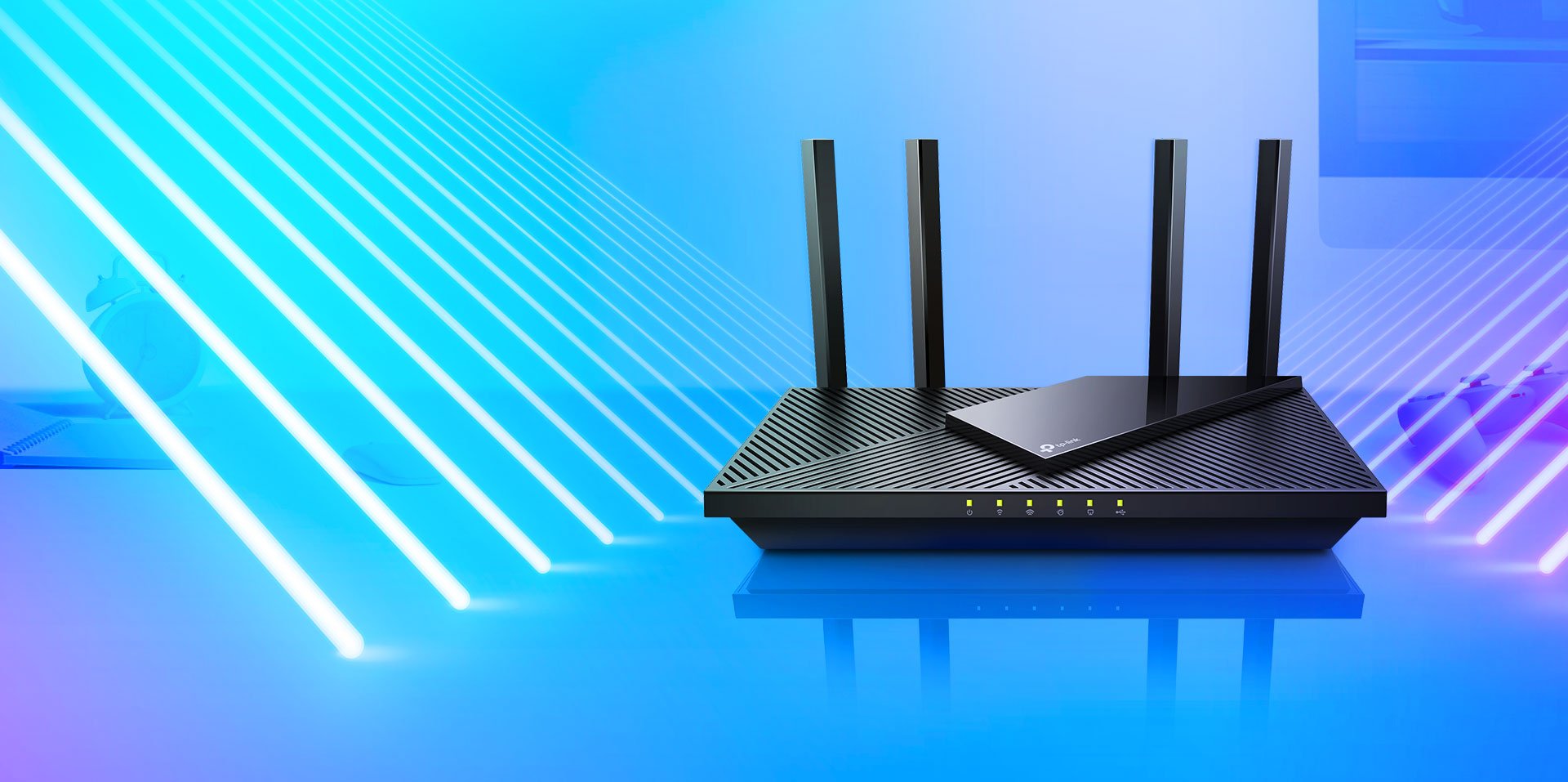

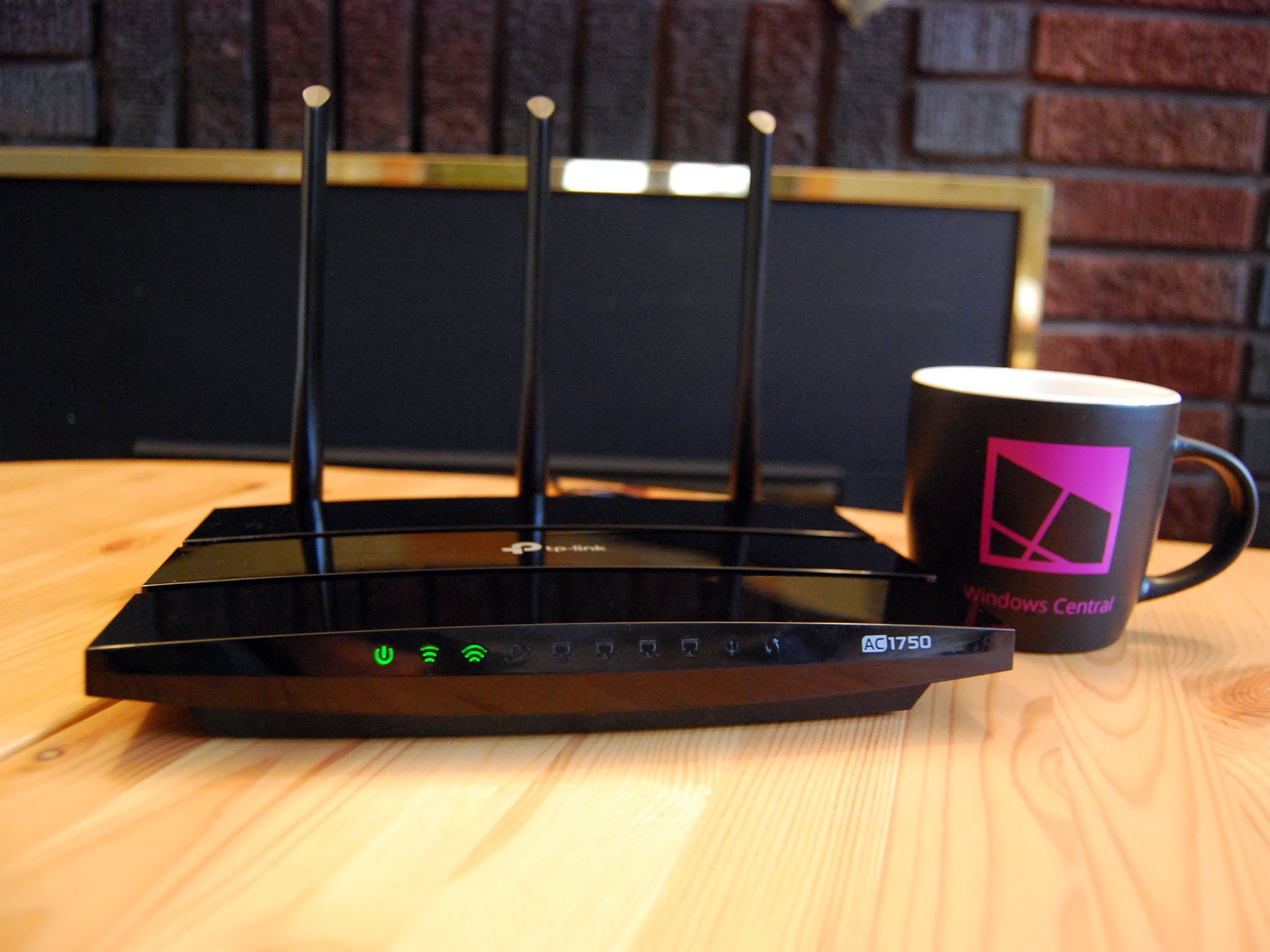
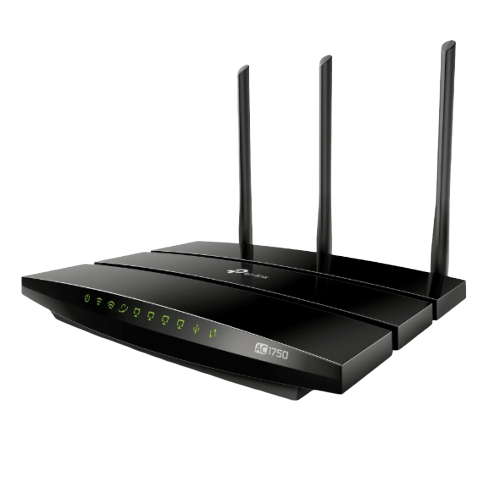
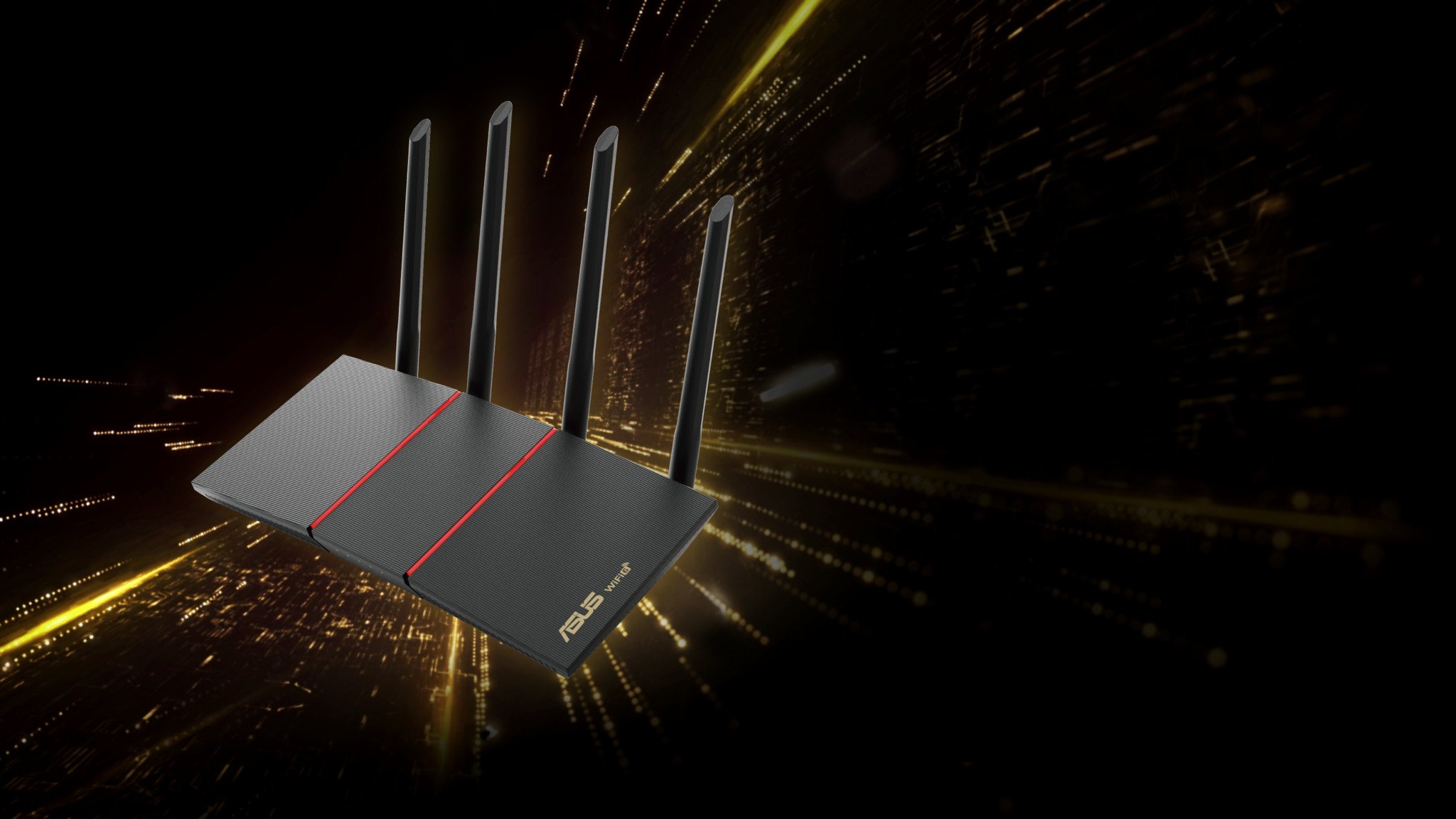
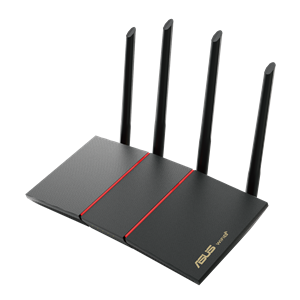
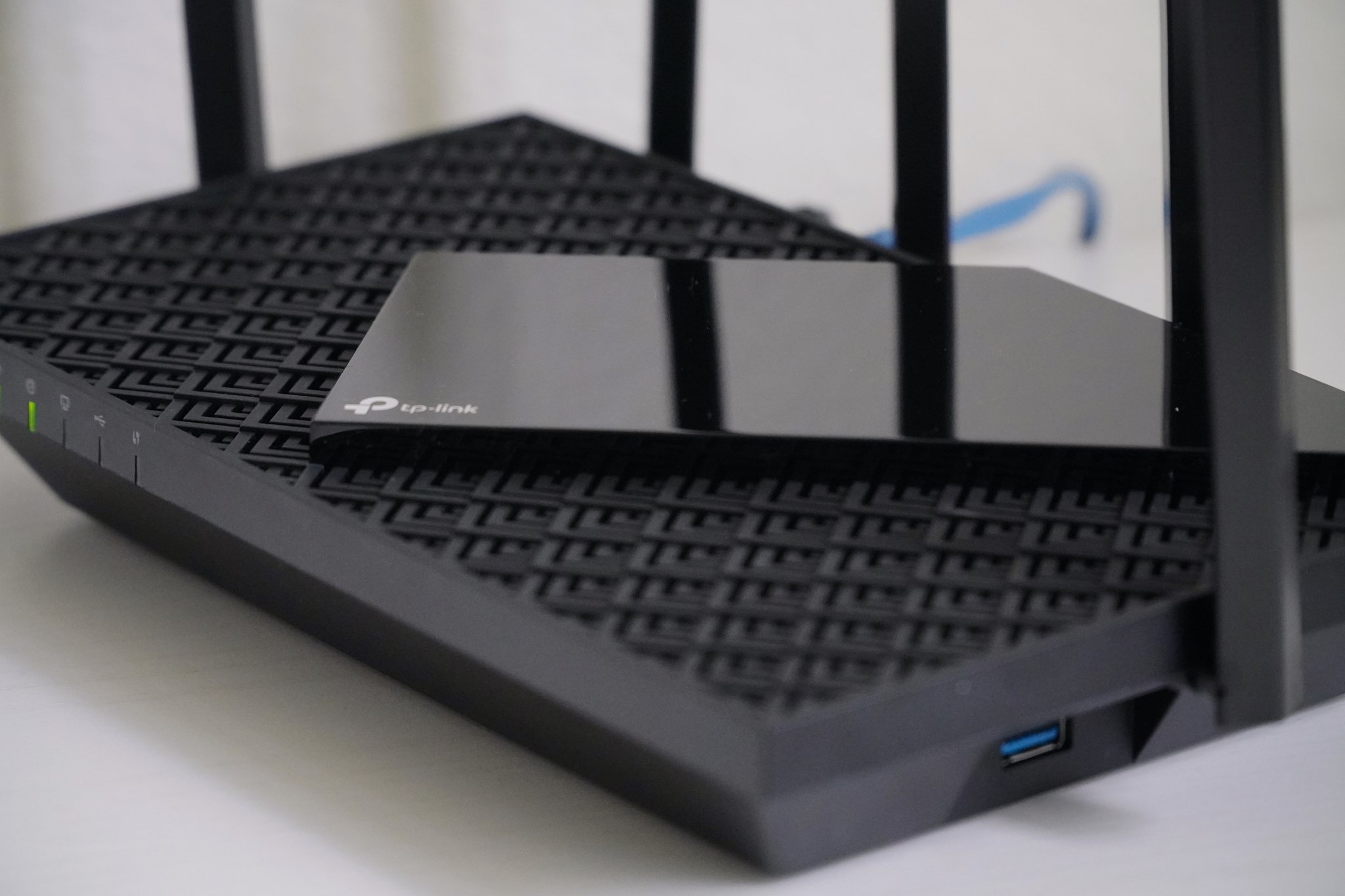
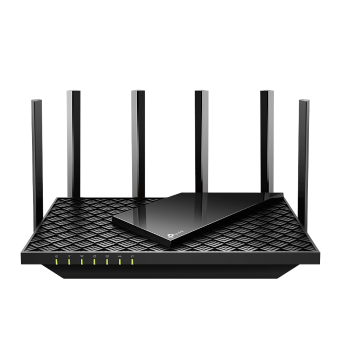
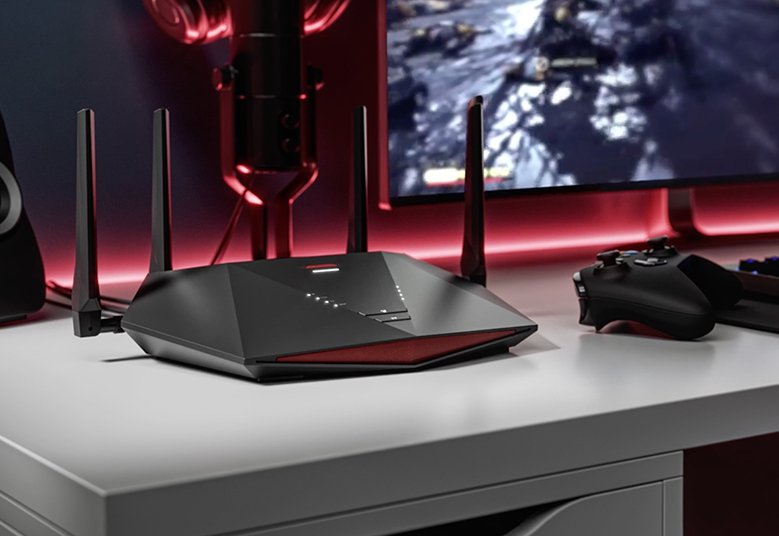
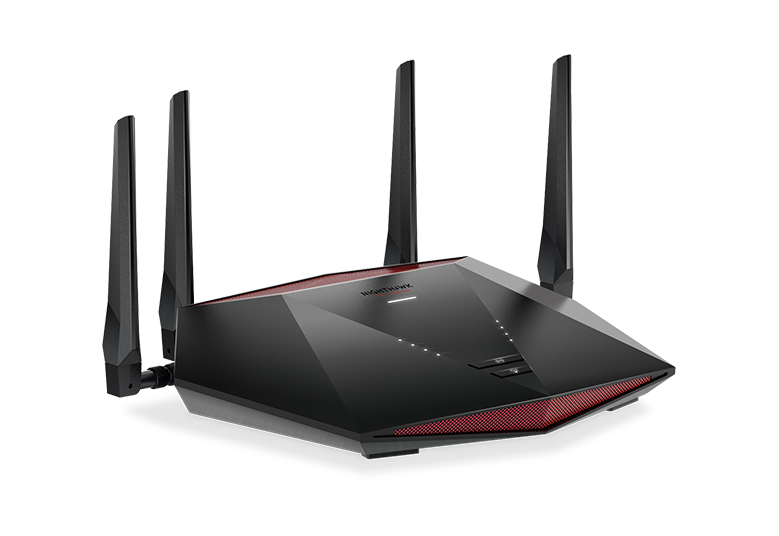

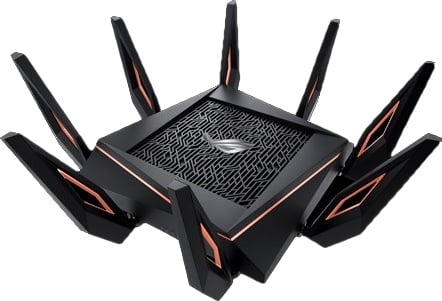

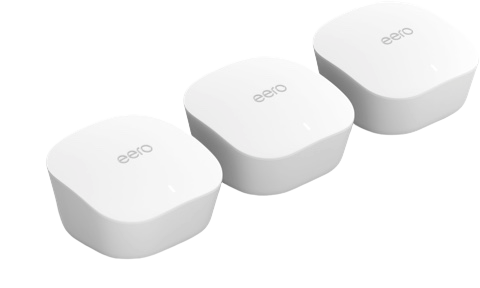
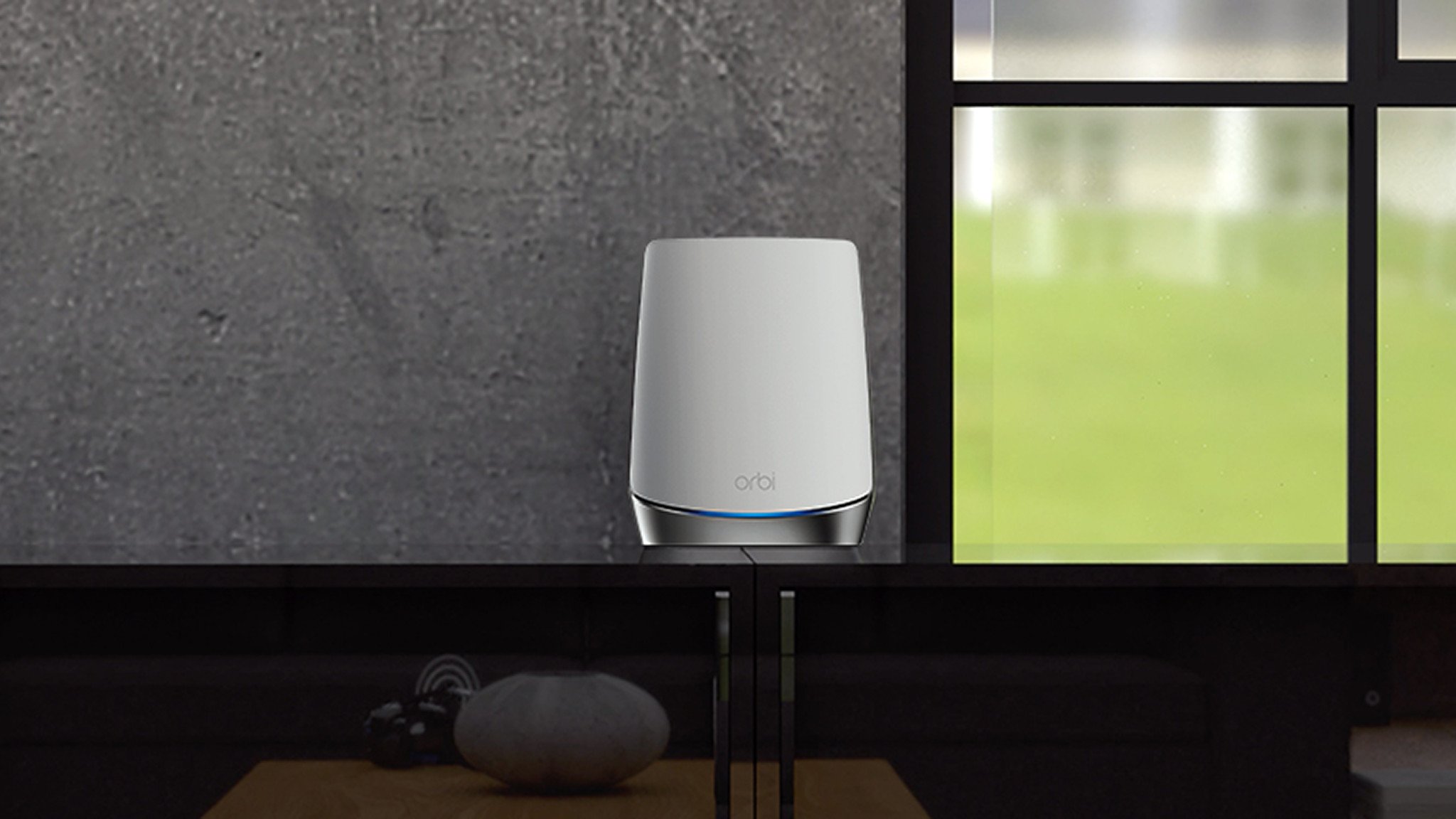
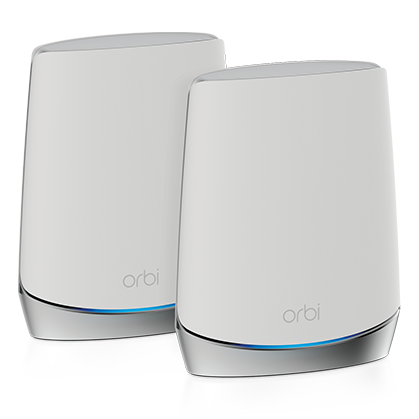
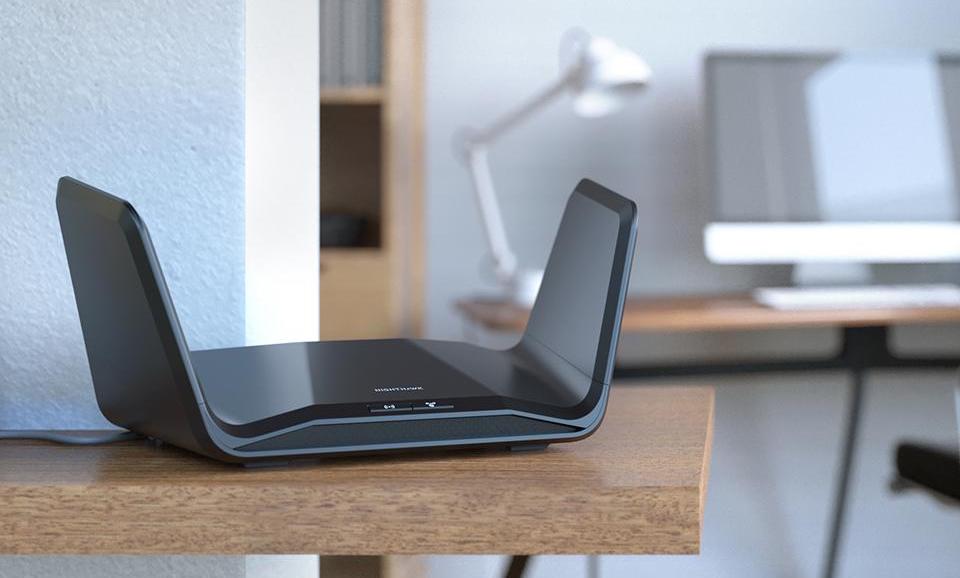

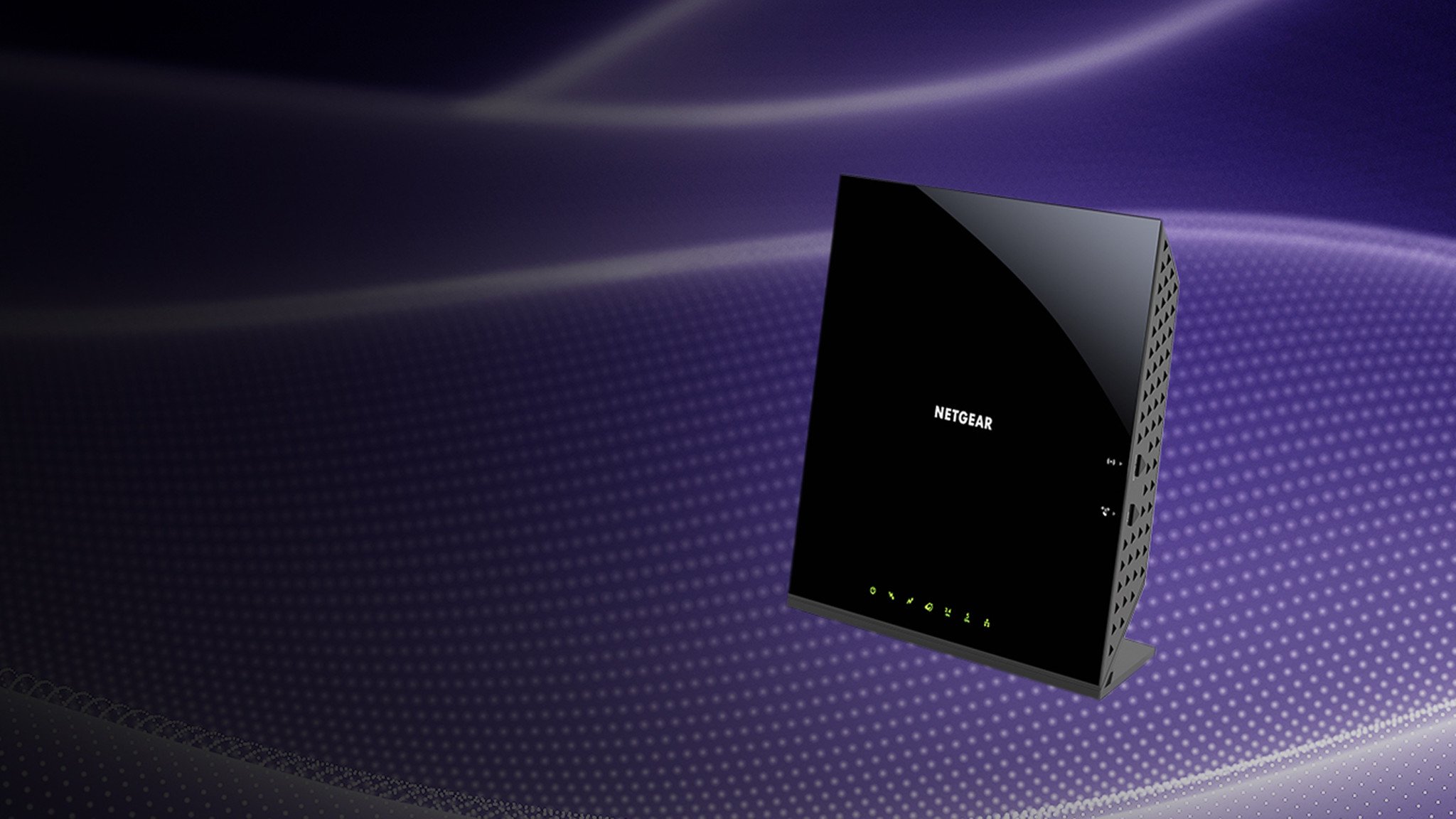
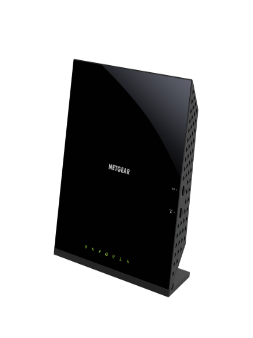
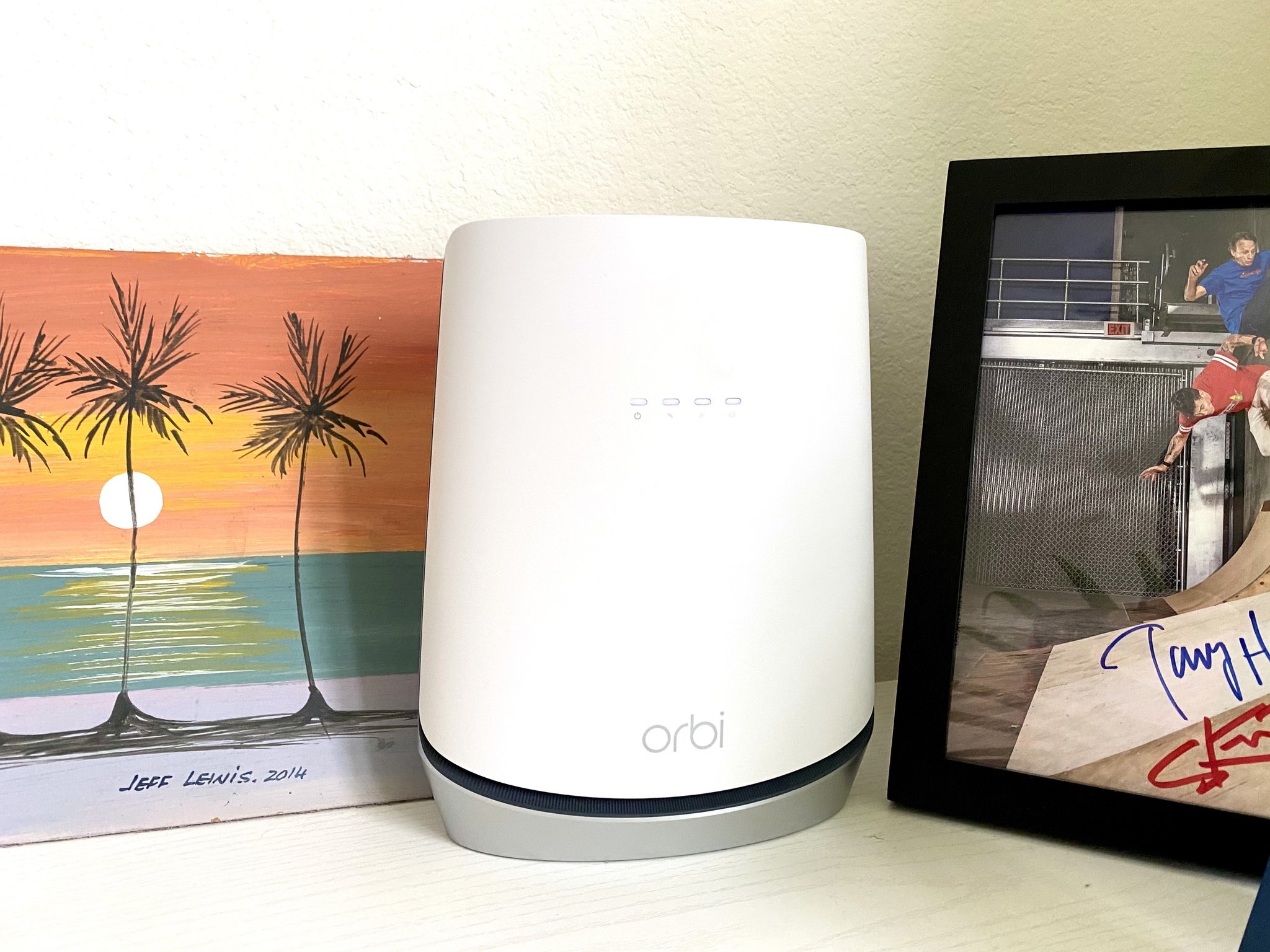

Tidak ada komentar:
Posting Komentar